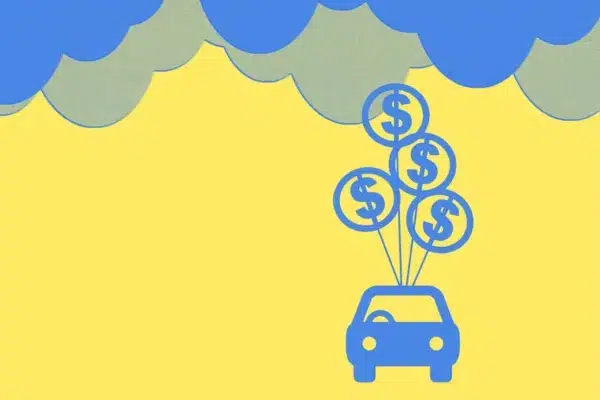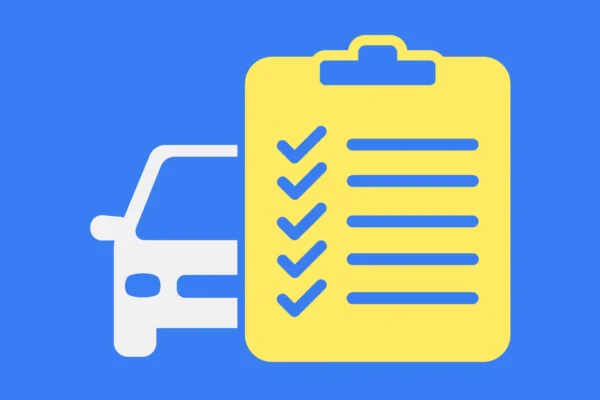
How to Get a Good Deal on a Car

Are you dreading that trip to the car lot to haggle with a salesman over a new vehicle?
You are not alone! A survey by Beepi revealed that 87% of American adults dislike something about the process of purchasing a vehicle at a traditional car dealership. Add in the pressure, competition, and a hot car market and the experience is even worse.
Luckily, there are steps you can take to make the process a little easier on yourself. If you go into it forewarned and forearmed about how to shoot for the best deal, negotiating can get a little easier.
How to Get a Good Deal on a Car
If you’re heading out to the dealership soon, consider these suggestions for getting the best price on your car of choice.
1. Analyze your needs and wants before stepping foot on a lot.
There are some basic questions to start with, like:
- How much can you afford in a down payment followed by monthly payments?
- How much space do you need?
- What features are must-haves?
- Will you trade lower gas mileage, more expensive repairs and/or higher insurance costs for a higher-end model?
Financing Your Next Car
Get pre-approved for a new or used auto loan. Explore rates, terms, and our full range of financing and refinancing options!
2. Know which nonstandard features are important to you.
If you aren’t sure which nonstandard features you want and could go without, you may end up paying extra for features you don’t care about or will never use. Further, many options hold little to no value in the aftermarket.
3. Know what prices to expect going in.
Note examples of the models that might best fit your needs, then check out market prices on Kelley Blue Book, Edmunds.com, or JD Power (formerly NADA) so you know what ranges to expect. Knowing the average market price of the car you have in mind can strengthen your negotiating power and prevent you from spending more than you want to.
4. Get preapproved or prequalified for financing before you walk on the lot.
Paying cash for your car has a number of advantages, like no monthly payments and not paying any interest. Of course, not everyone has the cash reserves to do this, so many opt for financing.
If you are looking for financing, shop around before even stepping on a lot. Walking into a dealership with a prequalification letter gives you leverage, showing salespeople that you are a serious buyer and have approval-worthy credit history.
5. Ask dealers to talk about price in terms of total amounts.
Look at the total price of the car, not monthly payments. This allows you to compare vehicles instead of payments. A car that is $300 a month for four years is much cheaper than a car with a $300 payment over seven years.
6. Read dealerships’ online reviews to look for perks recently offered to others, then ask for those perks yourself.
They may not extend you the same deal, but it never hurts to ask!
7. Shop various dealerships, including online sources, to compare prices.
In a hot market, shopping around is important. Don’t be shy—let them know you’re looking at several dealerships. Often competing dealers will throw in rebates or other incentives. If you think you’re not being offered the best price or financing rate based on your research, don’t hesitate to move on.
You may prefer to conduct your deal online rather than haggling in person, which makes comparison even easier. If you combine online shopping with in-person, you’re likely to get the best deal.
8. Skip the warranties.
Extended warranties (the extra-cost varieties that extend beyond 90 days) are typically only used by about half their purchasers, according to a recent Consumer Reports study that advises spending the money elsewhere.
If you do want to add extended warranties for extra protection, you may want to consider those offered by your lender, rather than those offered by the dealer. Warranties from the dealer typically have a higher markup, and you may be able to get a similar (or better) warranty from your lender.
Other types of tire warranties offered include tire life, tread life, road hazard, workmanship, materials, manufacturer’s specials, and uniformity. Consumer Reports calls them all “next to useless” because of the many stipulations involved in filing successful claims.
9. Avoid the add-ons.
Similarly, most experts advise against spending any extra money on rustproofing, fabric protection, or paint protection offered by dealers, as they’re mostly unneeded in modern vehicles.
10. When buying new, buy at the end of a model year.
Prices will be lower if a new model year is about to roll out. The last week of the year can be an ideal time to buy new.
11. Shop weekday afternoons.
Salesmen will have the most time to discuss deals with you if you shop on weekday afternoons.
12. Consider certified pre-owned.
Given a choice between a certified pre-owned (CPO) car and a non-CPO used car, choose the CPO. Certified pre-owned cars are factory-certified and have undergone rigorous inspections and maintenance checks. The longer warranty and extra quality assurance are often worth the extra cost, and the APR on your loan will probably be lower as well.
13. Don’t overlook cars with accident histories.
Don’t automatically reject cars with accident histories listed on Carfax or AutoCheck; some may have been subject only to minor dings or fender benders. A mechanic’s inspection can reveal the true story.
However: be wary of any vehicle with a “salvage title”. This means an insurance company has declared the vehicle a total loss. In other words, the car has experienced significant damage. Salvaged cars are subject to complex insurance coverage and restrictions, may not be repaired completely, and may not be able to be restored to full use. If you’re not familiar with the complications and uses of salvage titles, steer clear!
14. Consider the added costs of high-mileage cars.
Consider the extra cost of upkeep associated with older, high-mileage cars. The vehicle’s service manual can advise you as to what routine maintenance may be due soon.
15. Ask for the inventory report and invoice sheet.
Dealers are more likely to drop prices on cars that have been on a lot longer than 60 days; if in doubt, ask the dealer to see the vehicle history report to determine when it came in.
Similarly, the invoice sheet will tell you what they actually paid for the car, which can help you determine a fair price for the vehicle. Keep in mind that this sheet may not include all of the kickbacks the dealership may benefit from if they sell the car.
16. Consider former rental cars.
Former rental cars are often good values because they’ve undergone regular maintenance and tend to be newer models. The downside of rentals is that they tend to have higher-than-normal mileage and may have more wear-and-tear.
17. Think twice about trading your old car in.
Thinking about trading your car in? You’re almost certain to recoup more value from your current car if you sell it yourself instead.
If you do choose to go the trade-in route, don’t inform dealers you want to trade in your car until their final offer has been made, as they may otherwise use that as a negotiating point.
18. Don’t rush the process.
The car market can be difficult to navigate under the best of circumstances, but when car values start to skyrocket, there can be enormous pressure to find and buy a car quickly. There are certainly circumstances that mean you have to buy a car quickly, especially if there’s been an accident or your one car can’t be fixed.
But if you have time to shop, you can slow down! It’s all too easy rush into buying a car because you’re afraid of losing the deal, or because you’re worried you’ll miss out entirely—and end up with a car that you hate or doesn’t meet your needs.
So take a breath! And take your time.
Hit the Road
If you treat your next car purchase as a process that starts with a little research, you’re far more likely to get the best bang for your buck. Car buying may not be your definition of fun, but the ordeal will be far better if you go in with a little car buying know-how.


